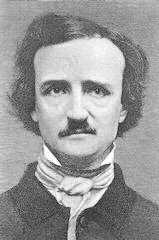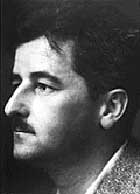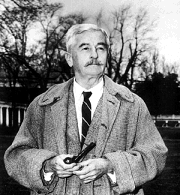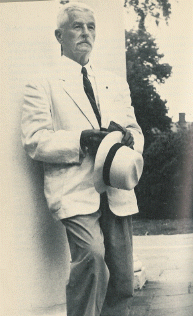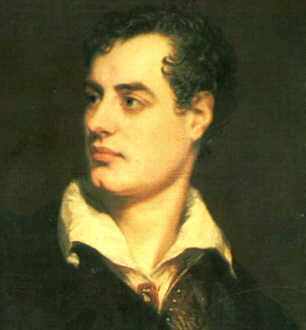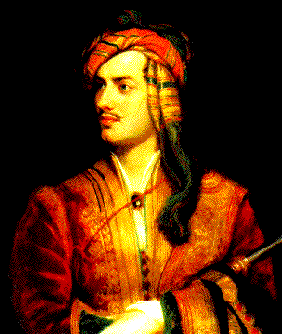LITR 5535 American Romanticism

Edgar Allan Poe, “Ligeia” & “Fall of the House of Usher”; William Faulkner, “A Rose for Emily"
| midterm research proposals forthcoming email today's schedule poetry: Corey [break] discuss Poe Faulkner reading: next week's assignments |
|
Monday 2 October: Take-home midterm exam due within 72 hours of class meeting. Edgar Allan Poe, N 694-696, 704-727 (“Ligeia” & “Fall of the House of Usher”); William Faulkner, “N 2160-66.
selection reader / discussion leader: Bonnie Napoli
poetry: Poe, "Anabelle Lee," N 2671
poetry reader / discussion leader: Corey Porter
midterms
Nobody’s late so far
72-hour limit = Thursday morning or Friday night
will return midterms to you by email—maybe by next class, so check Sunday night or Monday morning--but maybe not, so don't worry if delayed
Your reactions to my reactions . . .
Welcome to email back (or phone or confer)—grading is very sensitive material, so the temptation is to keep it out of sight and refuse discussion, but look at it as another learning / teaching opportunity
Remind you that usually no line-editing unless indicated—but will line-edit with you if you like.
Research proposals
app. 2 weeks from today . . .
Monday 16 October: Research Proposal Due (within 72 hours of class). Harriet Jacobs, Incidents in the Life of a Slave Girl, N 812-834. Frederick Douglass, Narrative of the Life . . . , N 939-973.
selection reader / discussion leader: Tish Wallace
poetry: Robert Hayden, "Those Winter Sundays," N 2669
poetry
reader / discussion leader:
Anuruddha Ellakkala
(from syllabus)
Research
Project
Examples on webpage: Students should review examples of previous student research proposals and projects on the “Model Assignments” sub-page of our course webpage.
Students
may choose from two
options for their research projects.
·
Option 1: 12-15 page traditional analytic / research essay relevant to course.
·
Option 2: 15-20 page journal of research and reflections concerning a variety of
materials relevant to the course.
Weight: approximately 40% of final grade
Due dates:
· proposal due via email within 72 hours of 16 October
· project due via email due within 72 hours of 13 November
Research proposal: Due
via email within 72 hours of 16
October.
Write at least two paragraphs containing the following information:
· Indicate which option—Option 1 (essay) or Option 2 (journal)—your research project will take. (If you’re stuck between the options, or trying to choose between different subjects, explain and explore the situation—I’ll reply as helpfully as I can.)
· If Option 1, list the primary text(s) you intend to work with. Explain the source of your interest, why the topic is significant, and what you hope to find out through your research. Describe any reading or research you have already done and how useful it has been.
· If Option 2, mention your possible choices of topics and areas of research for categories listed in Option 2 (journal) requirements.
· Explain the source of your interest, why the topic matters, and what you want to learn.
· Mention the types of research you intend, e. g., Background (encyclopedias, handbooks, critical digests, etc.), Secondary (advanced scholarly articles or books exploring a particular question, or reviews of scholarly books), etc.
· For either option, conclude by asking the instructor at least one question about your topic, possible sources for research, or the writing of your research project.
· Email or otherwise transmit an electronic version of your proposal to me at whitec@uhcl.edu.
· Research report proposals will be posted on the course webpage.
· If you want to confer about your possible topic before submitting a proposal, welcome to confer in person, by phone, or email.
Response
to Paper Proposal
· The instructor will email you a reaction okaying the proposal and / or making any necessary suggestions.
· You are welcome to continue going back and forth with the instructor on email until you are satisfied with your direction.
· Student does not receive a letter grade for the proposal, only a “yes” or instructions for receiving a yes. Students will not lose credit for problems in reaching a topic as long as they are working to resolve these problems.
· The only way you can start getting into trouble over the proposal is if you simply don’t offer very much to work with, especially after prompts from instructor. An example of a really bad proposal is one sentence starting with “I’m thinking about” and ending with “doing something about Poe,” then asking, “What do you think?” In these cases, a bad grade won’t be recorded, but the deep hole the student has dug will be remembered. Notes regarding the paper proposal may appear on the Final Grade Report.
biggest issues for my new students:
difference / choosing between essay and journal
What's expected in a journal? (it's not a diary or a junk-book)
Answers:
Review explanation in syllabus (as I'll begin to do next week)
Look at examples on Model Assignments page
forthcoming email
LITR 5535 Homepage > Craig White's Homepage
Class will receive a brief group-letter updating my wife's condition at her 1-year checkup.
Shared emails with classes last year, so will share with you
But no expectations of reactions, etc.
today's schedule
Monday 2 October: Take-home midterm exam due within 72 hours of class meeting. Edgar Allan Poe, N 694-696, 704-727 (“Ligeia” & “Fall of the House of Usher”); William Faulkner, “N 2160-66.
selection reader / discussion leader: Bonnie Napoli
poetry: Poe, "Anabelle Lee," N 2671
poetry reader / discussion leader: Corey Porter
Bonnie unable to attend--one of her students died over weekend, so she's involved with counseling, etc.
> general background on Poe
questions for Poe & Faulkner (discussion after break)
Corey's presentation on "Annabel Lee"
Last class's preview of Poe & Faulkner
Poe as "catalog of Romanticism"--His poems and stories are thick as fudge with standard Romantic attitudes and effects
passionate quests (learning, revenge, love, etc.) (quest as romance narrative)
loss (esp. "death of beautiful women")
supernatural (Romanticism doesn't have to go there, but if it's always escaping the here and now and testing boundaries, it's bound to go there sometimes)
the gothic--Poe = what most American readers think of when they think of "the gothic" and related genres
Poe & Faulkner as examples of European / Southern gothic
(contrast wilderness / Puritan gothic of Cooper, Irving, Hawthorne)
Southern USA remains strangely European in some ways: feudalism, stark divisions of rich and poor, "heritage" of past, social positions
general background on Poe
most popular writer in our course, maybe the only writer who many people would read without courses like ours
critical-scholarly status about Poe: always a little mixed.
Compare to Faulkner--probably America's greatest writer ever, at least in terms of critical respect. "America's Shakespeare" (But we don't study Faulkner as much in this course b/c he's only tangentially related to Romanticism through the gothic.)
Critical credit:
great "musical" quality in verse and prose
very high achievement in several short stories & poems
creator of several genres (detective story, early practitioner of science fiction)
admired and influential in Europe (French symbolist poets)
Comparable to Cooper in popularity and overseas influence
Critical doubt:
Poe concentrates on sensations and effects, therefore questionable depth
maybe just a lot of noise and horror
Poe as escapist fantasy, thrills and chills > appeal to dumb or ignorant aspects of popular mind
Questions for Poe:
What previous experiences studying / teaching Poe? Can people's reactions be connected to Romanticism?
How do you identify Poe's style? (again, connect to Romanticism)
Who thinks of Poe as an American writer? What can one learn about American Romanticism?
Poe as exemplary gothic writer--does he just re-cook gothic conventions, or does he actually develop the gothic?
Questions for Faulkner:
What kinds of continuity from Poe to Faulkner?
How does Poe turn Faulkner's "beauty as death of beautiful woman" around?
What does 20th century do with Romanticism?
next week's assignments
Monday 9 October: Nathaniel Hawthorne, N 579-584, 610-635 (“Young Goodman Brown,” “May-Pole of Merry Mount,” & “Minister’s Black Veil”)
selection reader / discussion leader: Angela Douglas
poetry: Sylvia Plath, "Blackberrying," N 2783
poetry reader / discussion leader: Jo Lynn Sallee
Hawthorne: add N 89-93
Poe: gothic
as sensation / psychology
Hawthorne: past as Puritan; light / dark as innocence / guilt + shades of gray
Poe: past as loss; gothic space as unconscious mind; house as head
both "Byronic"
dark, handsome, haunted men of "genius"
next class: review websites on Byronic hero
How do Poe, Byron, others fit model of Byronic Hero?
What significance of the Byronic hero?
Other possible topics:
Hawthorne's style, highly identifiable--when you read a Hawthorne story or novel, how can you tell it's Hawthorne?
Monday 16 October: Research Proposal Due (within 72 hours of class). Harriet Jacobs, Incidents in the Life of a Slave Girl, N 812-834. Frederick Douglass, Narrative of the Life . . . , N 939-973.
selection reader / discussion leader: Tish Wallace
poetry: Robert Hayden, "Those Winter Sundays," N 2669
poetry
reader / discussion leader:
Anuruddha Ellakkala
Poe as “catalogue” of Romanticism
desire and loss
gothic
correspondence
romance
life / legend blurred; reality / romanticism
Poe’s style: extreme speech patterns (i. e., not everyday speech as in Realism)
desire and loss
713
return / loss
713
time after time . . . this hideous drama of revivification
romance
708 too divinely precious not to be forbidden! . . . Ligeia grew ill
724 Here is one of your favorite romances
725 knight and dragon
gothic
fair lady-dark lady
705 decaying city near Rhine
705 raven-black . . . tresses
709 an abbey, gloomy and dreary grandeur, melancholy and time-honored memories
709 arabesque
715 very ancient family (contrast Americans)
719 “The Haunted Palace”
722 vaults within building
722
donjon-keep / tomb immediately below narrator’s sleeping quarters
correspondence
1. act or state of corresponding, relation or agreement of things to each other
or of one thing to another.
2. intercourse between persons by letters
+ Romantic concept concerning relation between inner and outer world, soul and nature, self and cosmos
Emerson 488 every hour and change corresponds to and authorizes a different state of the mind
"Legend of Sleepy
Hollow"
2097 every sound of nature, at
that witching hour, fluttered his excited imagination
2107 sank deep in the mind of
Ichabod
2108 all the stories of ghosts
and goblins . . . came crowding upon his recollection. The night grew darker and
darker
711 must, after all, I considered, have been but the suggestion of a vivid imagination, rendered morbidly active by the terror of the lady, by the opium, and by the hour.
712 that fantastical chamber
714 first glimpse of building, insufferable gloom
pervaded my spirit [correspondence]
714 vacant eye-like windows
715
id house and family
718 superstition / building
718 identical Madeleine
718
mind = radiation of gloom
725 echo
725 exact counterpart
life / legend blurred; reality / romanticism
Poe’s style: what can and can’t be said (cf.
romance)
Language of extremes (cf. Romanticism)
Cf. Edwards, 216-17
706 the beauty of beings either above or apart from the earth
706 that something . . . what was it?
706 upon the very verge of remembering
706 (strange, oh strangest mystery of all!) [superlatives]
707 catalog (cf. Aleph)
708
[more superlatives] [romanticism as extremes]
708 even more energetic
719 within the compass of merely written words
721 I lack words to express . . .
721 gothic list of books, [allusion]
Faulkner
|
|
|
|
William Faulkner, N 2160-66.
Faulkner reading:
Discussion question:
What are the merits and limits of the Gothic's usefulness?
Where is it delightful and informative? Where does it descend to "same old same old?"
What principles for extending its usefulness?
genre or style discussion: be prepared to shift terms; no single word answers for all, and even a single word changes its meaning as context changes.
Other terms potentially associated with gothic: terror, suspense, ghost stories, the grotesque.
Like Romanticism, "Gothic" is a convenient term for drawing a lot of diverse phenomena into a common field of discussion, but stretching the term too far can destroy the concept's snap and vigor.
Poe
as unique writer
"Insane drug addict"
>unlucky, hardworking alcoholic
constant "rewriting" of Poe's life
2387 influences, contributions by Poe
loss of beautiful woman
Poe
as catalogue of American Romanticism
Byronic hero
Character type named for English poet Lord Byron, 1788-1824
|
|
|
dark, handsome appearance
"wandering," searching attitude
haunted by some secret sin or crime
modern culture hero: appeals to society by standing apart from society, superior yet wounded
compare: Magua, Hawthorne, Claggart in "Billy Budd"
contemporary examples: James Dean, Kurt Cobain, Trent Reznor
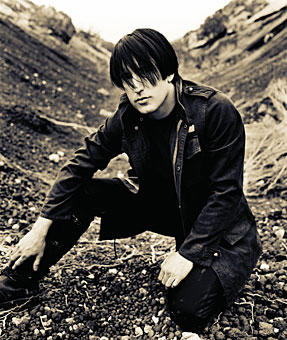
suggestions from girls in coffee shop:
Brandon Lee in The Crow

LeStat in The Vampire Chronicles
Layne Staley of Alice in Chains

Alan Rickman
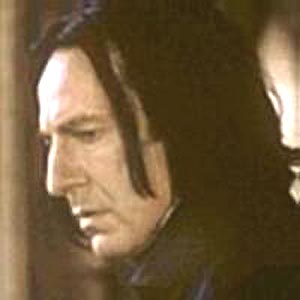
Sean Connery
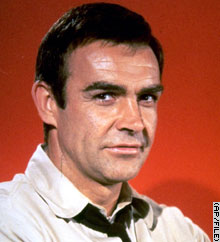
members of Sublime--died early, "danger to society"
Sting

Tupac Shakur

Rufus Sewell in Dark City
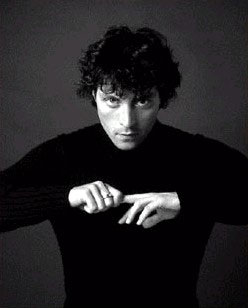
from literature:
Heathcliff in Wuthering Heights
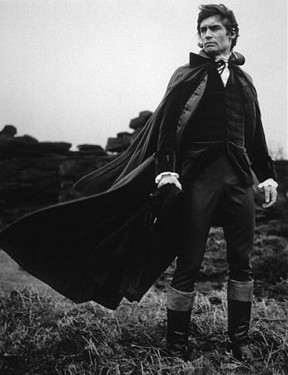
Rochester in Jane Eyre
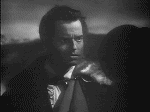
Women manifesting Byronism?
Cora in Mohicans

Question: What is the significance of the Byronic hero as a "culture hero?"
Why does the paradigm, image, or symbol continue to recur and / or evolve?
What's ironical about the significance?
significance: culture hero who is dangerous to the culture for which he is a hero
farewell Mohicans
intermixing of European Romanticism with American subject matter ("knights of the forest," Cooper as "the American Scott")
gothic space > wilderness
gothic secret > race mixing, dispossession (Lawrence on ghosts)
sublime scale of setting, titanic characters, combination of archaic and biblical speech (i. e., not everyday speech)
Romanticism as stretching boundaries of possible: plot devices of miraculous marksmanship, disguises, but also glimpse of possible relation between Cora and Uncas
romance narrative as journey > popular cliffhanger; capture, escape, pursuit
What's different about Mohicans from later Romanticism or Transcendentalism:
less internalized, characters as types, closed off to close identification
